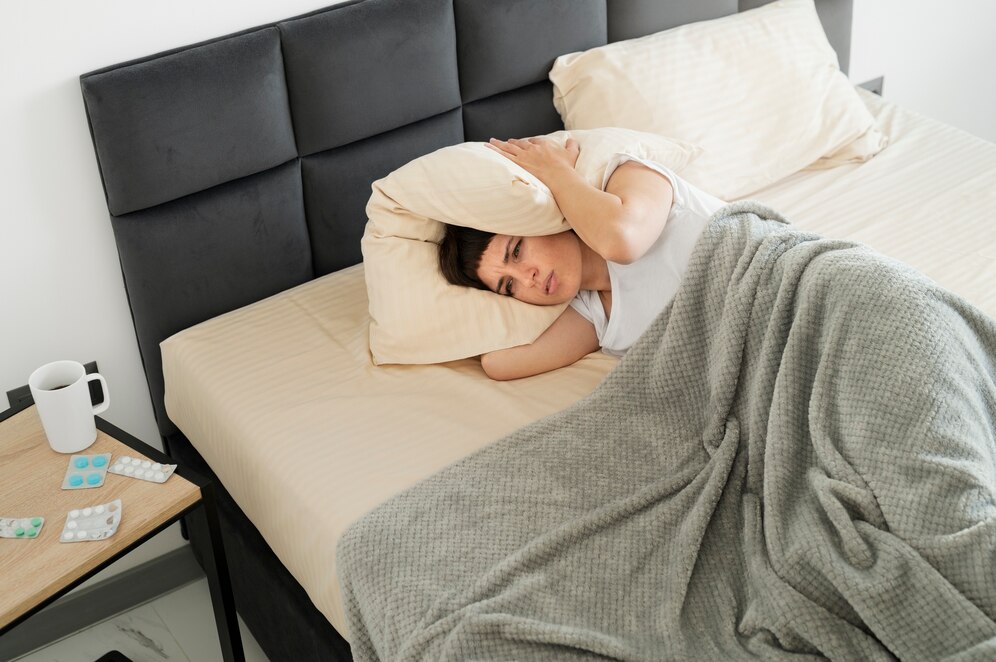Understanding the signs of sleep apnea and snoring is essential for maintaining good health and ensuring restful sleep. In this article, we will discuss eight key warning signs to watch for, explore snoring prevention strategies, and suggest lifestyle changes for better sleep.
Thank you for reading this post, don't forget to subscribe!
Signs of Sleep Apnea and Snoring
- Loud and Persistent Snoring
Snoring is common, but when it becomes loud and persistent, it can be a sign of sleep apnea. This type of snoring indicates that the airway is partially blocked during sleep, leading to disrupted breathing patterns.
- Gasping or Choking During Sleep
Gasping or choking sounds during sleep are hallmark signs of sleep apnea. These sounds occur when breathing stops and starts repeatedly, preventing you from reaching deep, restorative sleep stages.
- Excessive Daytime Sleepiness
Despite getting a full night’s sleep, if you feel excessively tired during the day, it might indicate sleep apnea. Daytime fatigue occurs because the quality of sleep is compromised by frequent awakenings.
- Morning Headaches
Waking up with headaches can be linked to sleep apnea. These headaches are often due to low oxygen levels or high carbon dioxide levels in the blood caused by interrupted breathing.
- Difficulty Concentrating
Sleep apnea can significantly impact cognitive functions like memory, attention, and decision-making. Difficulty concentrating might be a result of poor sleep quality due to sleep apnea.
- Irritability and Mood Changes
Lack of restful sleep can lead to irritability, mood swings, and even depression. These changes can strain relationships and reduce your overall quality of life.
- Frequent Urination at Night
Waking up multiple times during the night to urinate (nocturia) can be a sign of sleep apnea. The body’s response to interrupted breathing can include increased production of urine.
- Dry Mouth or Sore Throat in the Morning
Waking up with a dry mouth or sore throat is common among those with sleep apnea. Mouth breathing due to blocked nasal passages can cause these symptoms.
Snoring Prevention Strategies
Addressing snoring is crucial for improving sleep quality. Here are some effective snoring prevention strategies:
Sleep Position
Sleeping on your side rather than your back can help prevent snoring. Elevating the head of your bed slightly can also reduce snoring by keeping airways open.
Weight Management
Maintaining a healthy weight can reduce fatty tissue around the neck, which can contribute to snoring and sleep apnea.
Avoid Alcohol and Sedatives
Alcohol and sedatives relax the muscles in your throat, increasing the likelihood of snoring. Avoid consuming these substances, especially before bedtime.
Stay Hydrated
Drinking plenty of water helps keep the tissues in your throat hydrated, reducing the chances of snoring.
Nasal Strips or External Nasal Dilators
These devices can help keep nasal passages open, making breathing easier and reducing snoring.
Lifestyle Changes for Better Sleep
In addition to specific snoring prevention strategies, making broader lifestyle changes can greatly improve sleep quality and help manage sleep apnea:
Regular Exercise
Engaging in regular physical activity can help maintain a healthy weight and improve overall sleep quality. Aim for at least 30 minutes of moderate exercise most days of the week.
Healthy Diet
Eating a balanced diet rich in fruits, vegetables, lean proteins, and whole grains can support weight management and overall health, reducing the risk of sleep apnea.
Establish a Sleep Routine
Going to bed and waking up at the same time every day can regulate your body’s internal clock and improve sleep quality.
Limit Caffeine and Nicotine
Both caffeine and nicotine are stimulants that can interfere with sleep. Avoid consuming these substances, especially in the hours leading up to bedtime.
Create a Comfortable Sleep Environment
Ensure your bedroom is conducive to sleep by keeping it cool, dark, and quiet. Investing in a comfortable mattress and pillows can also make a significant difference.
Also read: Effective Lifestyle Changes To Reduce Snoring Naturally
Recognizing the warning signs of sleep apnea and snoring is the first step toward better sleep and improved health. By implementing snoring prevention strategies and making lifestyle changes for better sleep, you can address these issues proactively. If you suspect you or a loved one has sleep apnea, seek professional advice to explore treatment options and achieve restful, rejuvenating sleep.



